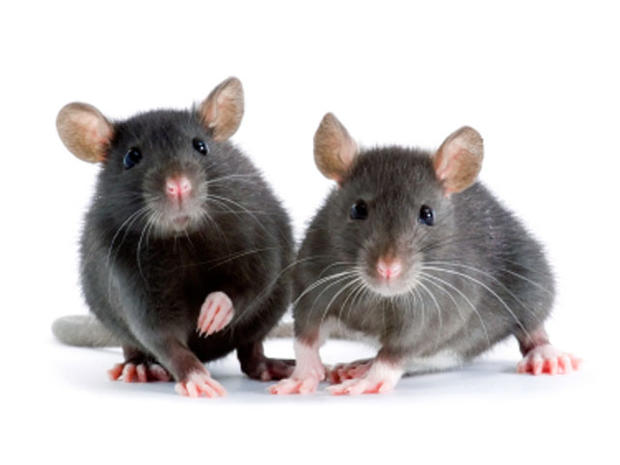Serotonin sex bomb: How to make a mouse bisexual or just really horny
(CBS) Scientists aren't sure whether they have figured out how to make mice bisexual or just so horny that they will mount whatever happens to saunter in their cage, but a fascinating study out of China sheds new light on the role of serotonin in sexual behavior.
Serotonin is a brain chemical long known to affect sex drive in humans. People who take anti-depressants like Prozac and Zoloft, drugs which increases serotonin in the brain, often have lower libidos.
For mice, the problem is particularly acute - give them too much serotonin and they have trouble gaining erections and ejaculating. But take it away and it's game on.
Researchers at Beijing's National Institute of Biological Sciences did just that. Working with male mice that lack a gene which makes serotonin, they introduced mice of both genders into their cages and sat down to watch the sex show.
Turns out the serotonin-deprived mice were quite the performers, mounting both male and female partners about 80 percent of the time. By comparison, normal male mice got funky with females between 60 and 80 percent of the time and didn't have much taste for their more macho counterparts - mounting them only 20 to 30 percent of the time.
Other signs backed up their mounting experiment. Serotonin-deprived mice sniffed the love scent of males and females equally and sang beautiful mating songs to both.
So, did scientists figure out how to make the mice bisexual or just really horny? That part isn't really clear. It's also not clear that any of this can be extrapolated to humans. For starters, mice already act far more bisexual than most hetero-oriented humans and scientists caution that between mice and men, we are built very differently. Also, there is no evidence that gay men who take anti-depressants (remember they increase serotonin) act or feel any less homosexual.
However it shakes out, we can be sure of one thing. The mice had a pretty good time.
The research was published in the journal Nature.
